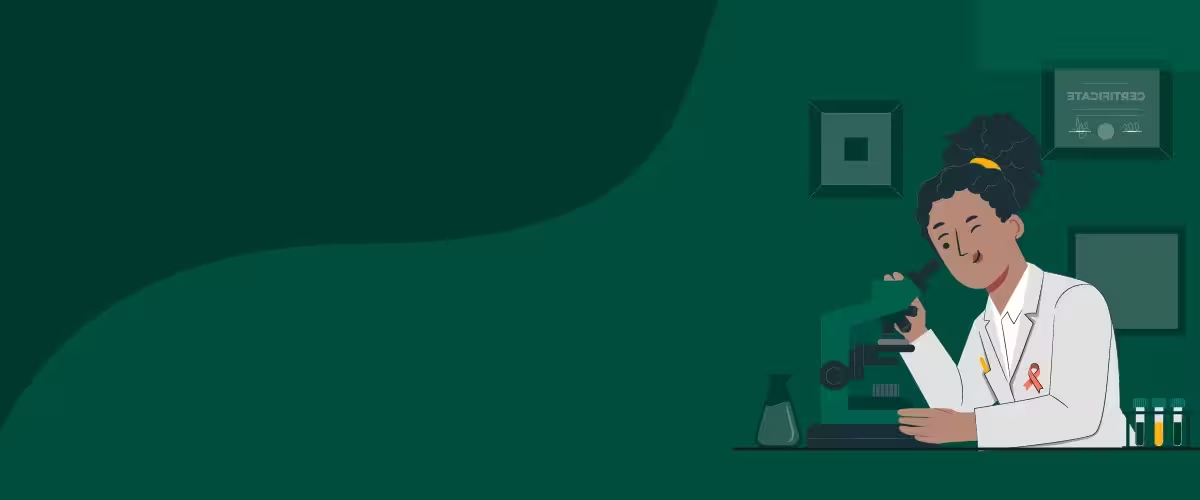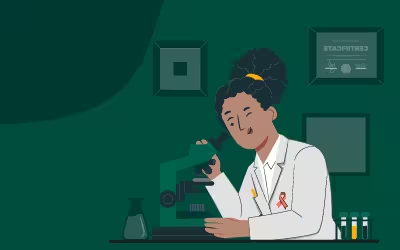Cancer in young people in the UK
While our risk of getting cancer increases as we age, more younger people now receive a cancer diagnosis. We look at the statistics and how young people can reduce their cancer risk.


What do the statistics say about young people with cancer?
90% of people diagnosed with cancer are over 50. Age is one of the main risk factors for cancer, and we're all living longer. However, the number of young people diagnosed with cancer is increasing. Rates of cancer in young adults aged between 25 and 49 increased by 22% between 1990 and 2018.
However, this age group only accounts for around 9% of new diagnoses. Children, teenagers, and young people aged under 25 make up less than 1% of cancer cases. While these figures are comforting, the increase in incidence rates of cancer in young people should alert us to the possibility of future increases. How can young people lower their cancer risk and increase their chances of making a full recovery after a diagnosis?
You can control some risk factors while others are out of your hands. Young people want to have fun but can still act to live a healthier lifestyle and reduce their risk of getting cancer in the future.
Giving up smoking, limiting their consumption of alcohol and junk food and reducing sun exposure and sunbed use can all help to prevent the most common cancers in young adults. Eating a healthy diet and exercising regularly also improves our general health. More young people are now receiving the HPV vaccination to prevent human papillomavirus, which can cause cervical cancer. However, practising safer sex can also reduce young adults' cancer risk.
Getting an early diagnosis
Getting an early cancer diagnosis improves your chances of survival, whatever your age. However, for young people, survival can depend on being diagnosed at an early stage. Cancer in teenagers and young adults can be particularly aggressive, so understanding the symptoms and engaging with health screening can help improve young adults' prospects of making a full recovery.
Understanding cancer symptoms can help young people get an early diagnosis. We've looked at the symptoms of the most commonly diagnosed types of cancer in young people to help you spot the warning signs.
Our information comes from the NHS Health A-Z site, where you can find information about other types of cancer, including symptoms, treatment and prevention.
Cervical cancer
Cervical cancer incidence rates have risen among young adults, but it's still extremely rare in anyone under 25. Symptoms to look out for include unusual vaginal bleeding, changes to vaginal discharge or pains in the lower back, stomach, between the hips or during sex.
Breast cancer
A breast lump is the most recognisable symptom of breast cancer. Regular breast checks allow young adults to become breast-aware, understand what's normal, and quickly identify any changes that need investigation.
Lumps, swelling or thickened tissue in the breast or armpit can be a sign of breast cancer, but there are other symptoms to look out for. Book an appointment with your GP if you notice a change in the size or shape of your breasts, puckering, dimpling or redness to the skin or changes to your nipples. These could include discharge or a change to their appearance.
Skin cancer
There are two types of skin cancer: melanoma and non-melanoma. Malignant melanomas are more serious and typically appear in areas with regular sun exposure. Melanoma involves changes to moles. Look for changes over time, uneven shapes or edges, a mixture of colours and large moles. Some may also bleed, itch and become crusty, swollen or sore.
There are several symptoms of non-melanoma skin cancer, usually involving new growths. They're typically raised but can be smooth, crusty, bumpy or rough in texture. They can be brown, red or purple. Non-melanoma cancers often result from sun exposure, so keep an eye on areas with regular sun exposure or where you've had sunburns.
Bowel cancer
The incidence of bowel cancers diagnosed in young adults has risen, but the disease is still more common in older people. Bowel cancer symptoms can be confused with other digestive issues such as stomach ache, bloating, constipation or diarrhoea. More obvious symptoms include blood in your poo or bleeding from your bottom, losing weight or feeling exhausted for no apparent reason.
There are various NHS screening programmes, but most teenagers and young adults aren't eligible to participate. Young adults may be offered genetic testing or screening if there is a family history of a particular type of cancer.
Mammograms to check for breast cancer are only available to women aged between 50 and 70, so self-examination is crucial for young adults. Bowel cancer incidence is higher in older people, so people aged between 60 and 74 are sent test kits.
We've mentioned cervical screening, which is available to women between 25 and 64. It's extremely rare among young adults and doesn't cause any young adult cancer deaths. There's no evidence that early screening increases the number of young people diagnosed with cancer.
However, once you are eligible for screening, it's a good idea to participate.
An early diagnosis enables quick treatment. The Government has recently introduced new waiting time targets for cancer treatment. Generally speaking, if you have an urgent referral, you should see a specialist for tests within two weeks in England and as soon as possible elsewhere in the UK. The new Faster Diagnosis Standard in England aims to ensure you get a diagnosis within 28 days of your referral. In England, Scotland and Northern Ireland, you should start treatment within either 31 or 62 days.
NHS England statistics show high levels of compliance with these standards. However, there has been an overall decline in the past few years.
Every private health insurance policy includes cancer coverage as standard. If your policy provides outpatient coverage, you can benefit from a fast diagnosis and quick access to treatment. Most policies cover cancer treatment in a private hospital, including surgery, radiotherapy and chemotherapy. Some also offer additional services such as nutritional advice, guidance on wigs and prosthetics, and stem cell and gene therapy.
Private healthcare providers invest heavily in new treatment options, meaning cancer cases benefit from cutting-edge technology.
Young people diagnosed with cancer may need additional mental health support. Your private healthcare team can include access to counselling and specialist advice.
Get professional advice
MyTribe guides help you understand health and well-being issues and your healthcare and treatment options. If you'd like to learn more about how health insurance can support you through cancer, contact us for a comparison quote. We'll put you in touch with a high-quality, regulated broker for tailored advice.
What our readers say
We are rated Excellent on Google from 150+ reviews. Our reviews relate to the service provided by both myTribe and its partners.
Disclaimer: This information is general and what is best for you will depend on your personal circumstances. Please speak with a financial adviser or do your own research before making a decision.









